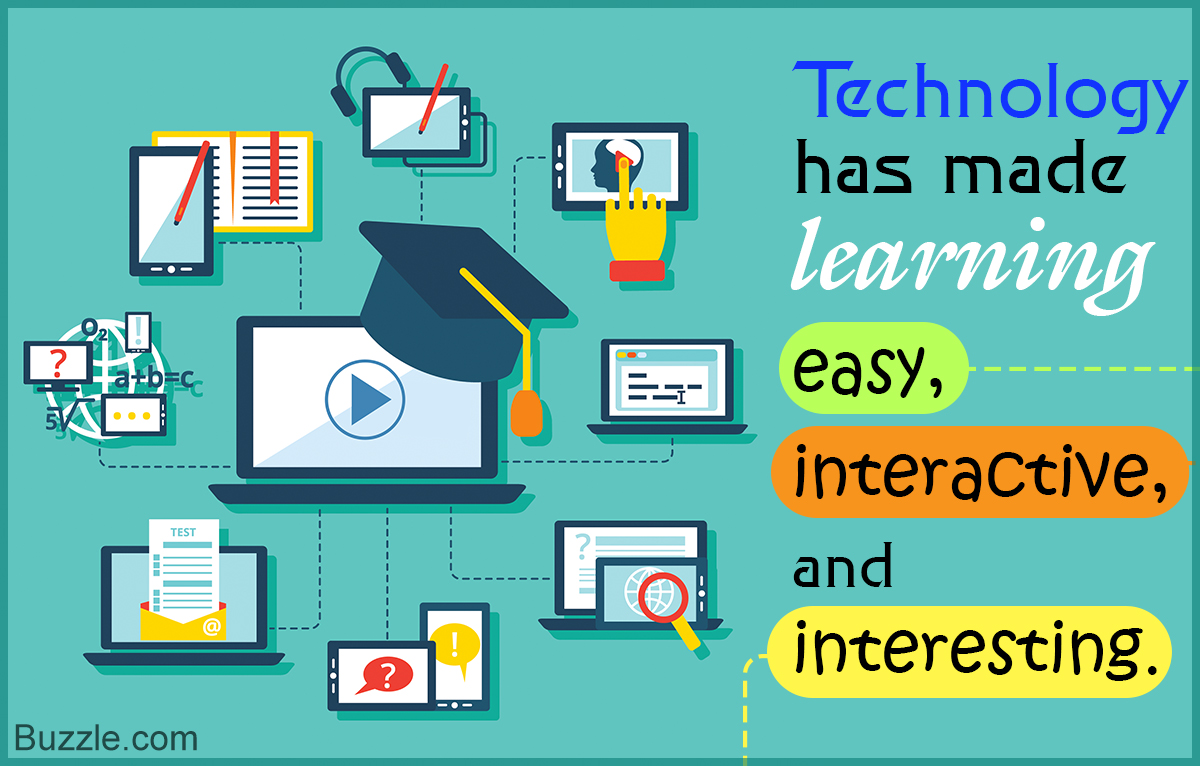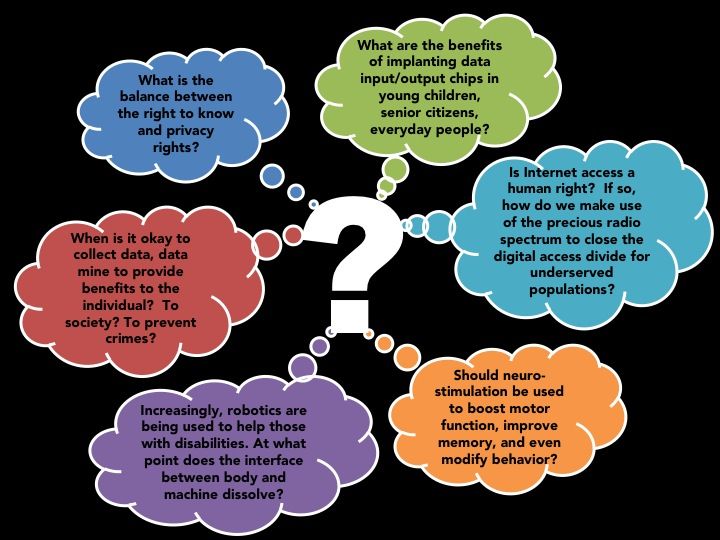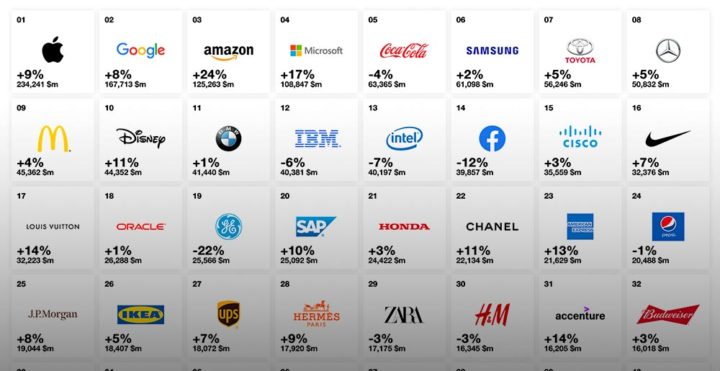Ethical Use of Technology in Education: A Framework for Responsible Learning
Ethical use of technology in education takes center stage as educational institutions increasingly embrace digital tools. This integration presents a unique opportunity to enhance learning experiences, but it also raises […]

Ethical use of technology in education takes center stage as educational institutions increasingly embrace digital tools. This integration presents a unique opportunity to enhance learning experiences, but it also raises critical questions about responsible use, data privacy, and equity. This exploration delves into the principles and practices that guide the ethical integration of technology in educational settings, ensuring that it empowers students, promotes inclusivity, and fosters a responsible digital environment.
The ethical use of technology in education involves a commitment to balancing the benefits of technology with the need to protect student privacy, promote equity, and ensure responsible use. It necessitates a nuanced understanding of the potential risks and ethical dilemmas associated with technology integration, and it requires a proactive approach to address these challenges.
Digital Citizenship and Responsible Technology Use
Digital citizenship encompasses the responsible and ethical use of technology, encompassing online safety, privacy, and the awareness of the impact of digital actions. This section will delve into designing a curriculum promoting digital citizenship and responsible technology use, identifying key skills and knowledge for students, and discussing the role of educators and parents in fostering ethical technology use.
Designing a Curriculum for Digital Citizenship
A comprehensive curriculum for digital citizenship should equip students with the necessary skills and knowledge to navigate the digital world responsibly. This curriculum should be integrated across various subjects and grade levels, ensuring a holistic approach to digital citizenship education.
- Online Safety and Security: Students should learn about cyberbullying, online predators, and the importance of strong passwords and privacy settings. They should be taught to identify and report suspicious online behavior.
- Digital Etiquette and Communication: Students should understand the importance of respectful online communication, avoiding cyberbullying, and using appropriate language in online interactions.
- Copyright and Intellectual Property: Students should be aware of copyright laws, plagiarism, and the ethical use of digital content.
- Digital Footprint and Privacy: Students should understand the concept of their digital footprint and the importance of managing their online presence. They should be taught to be mindful of the information they share online and the potential consequences.
- Critical Thinking and Media Literacy: Students should be able to critically evaluate online information, identify fake news, and understand the biases inherent in digital media.
Key Skills and Knowledge for Responsible Digital Citizenship
Developing responsible digital citizens requires students to possess a range of skills and knowledge.
- Critical Thinking and Problem Solving: Students need to be able to analyze information, evaluate sources, and make informed decisions in the digital environment.
- Communication and Collaboration: Effective communication and collaboration are essential for students to participate constructively in online communities and projects.
- Digital Literacy and Technology Skills: Students need to be proficient in using various digital tools and platforms, including search engines, social media, and online learning environments.
- Ethical Decision-Making: Students need to develop a strong ethical compass to guide their online behavior and understand the consequences of their actions.
- Self-Awareness and Emotional Intelligence: Students need to be aware of their online presence and its impact on others. They should also develop emotional intelligence to navigate online interactions effectively.
The Role of Educators and Parents
Educators and parents play a crucial role in fostering ethical technology use among students.
- Educators: Educators should integrate digital citizenship into their curriculum, model responsible online behavior, and create a safe and supportive learning environment. They should also collaborate with parents to address concerns and provide support.
- Parents: Parents should set clear rules and expectations for technology use, monitor their children’s online activity, and engage in open and honest conversations about online safety and digital citizenship.
Promoting Responsible Technology Use
Encouraging responsible technology use requires a multi-faceted approach.
- Open Dialogue: Engaging in open and honest conversations about technology use, its benefits, and its potential risks is essential.
- Role Modeling: Educators and parents should model responsible online behavior by demonstrating respect, ethical communication, and critical thinking skills.
- Collaboration: Educators, parents, and community organizations should collaborate to create a supportive environment for students to learn and practice responsible technology use.
- Technology Integration: Technology should be integrated into the curriculum in a way that supports learning and promotes responsible use.
Ethical Use of Technology in Teacher Training and Professional Development: Ethical Use Of Technology In Education

Technology has revolutionized the way teachers learn and grow, offering innovative tools and platforms for professional development. This section explores the ethical considerations surrounding the use of technology in teacher training and professional development.
Examples of Technology in Teacher Training and Professional Development
Technology can enhance teacher training and professional development in numerous ways.
- Online Learning Platforms: Platforms like Coursera, edX, and FutureLearn provide access to a vast array of courses and workshops covering diverse topics, from educational technology integration to pedagogical approaches. These platforms offer flexibility and convenience, allowing teachers to learn at their own pace and from anywhere with an internet connection.
- Virtual Reality (VR) and Augmented Reality (AR) Simulations: VR and AR technologies can create immersive learning experiences that simulate real-world classroom scenarios. Teachers can practice teaching strategies, manage classroom situations, and gain valuable insights into student learning through these simulations.
- Collaborative Learning Tools: Online platforms like Google Classroom, Microsoft Teams, and Slack facilitate collaboration among teachers, enabling them to share best practices, discuss pedagogical challenges, and engage in peer-to-peer learning.
- Data Analytics and Personalized Learning: Technology can be used to analyze student data, identify individual learning needs, and tailor professional development opportunities to address specific areas of improvement.
Ethical Considerations in Using Technology for Teacher Learning and Growth
The ethical use of technology in teacher training and professional development is crucial to ensure equity, inclusivity, and respect for all learners and educators.
- Data Privacy and Security: It is essential to protect the privacy and security of teacher and student data collected through technology-based professional development programs. This includes implementing robust data encryption, access controls, and data retention policies.
- Digital Divide and Accessibility: Not all teachers have equal access to technology and the internet. It is important to consider the digital divide and ensure that technology-based professional development opportunities are accessible to all educators, regardless of their location or resources.
- Equity and Inclusivity: Technology should be used to create inclusive learning environments that respect the diverse needs and backgrounds of all teachers. This includes providing accommodations for teachers with disabilities and ensuring that technology is used in a way that promotes equity and fairness.
- Critical Evaluation and Informed Decision-Making: Teachers should be encouraged to critically evaluate the information and resources available through technology-based professional development programs. They should be equipped with the skills and knowledge to make informed decisions about which technologies and resources are most appropriate for their needs and contexts.
Challenges and Opportunities for Promoting Ethical Technology Use Among Educators
Promoting ethical technology use among educators requires a multifaceted approach.
- Teacher Training and Professional Development: Integrating ethical considerations into teacher training programs and professional development workshops is essential. Teachers need to be educated about data privacy, digital citizenship, and the ethical implications of using technology in the classroom.
- Policy and Guidelines: Schools and districts should develop clear policies and guidelines for the ethical use of technology in teacher training and professional development. These guidelines should address data privacy, accessibility, equity, and other ethical considerations.
- Collaboration and Partnerships: Collaboration between educational institutions, technology companies, and policymakers is crucial to address the challenges and opportunities associated with ethical technology use in education. This collaboration can help to develop best practices, share resources, and advocate for ethical policies.
Ethical Considerations in Online Learning and Virtual Environments
The rise of online learning has opened up new avenues for education, but it also presents unique ethical challenges that require careful consideration. These challenges arise from the virtual nature of the learning environment, where interactions are mediated by technology and the potential for misuse is ever-present. It is crucial to understand these ethical considerations and implement measures to ensure a safe and equitable learning experience for all.
Cyberbullying in Online Learning Environments
Cyberbullying is a serious concern in online learning environments. The anonymity and distance provided by the internet can embolden individuals to engage in behaviors they might not consider in face-to-face interactions. This can lead to harassment, intimidation, and emotional distress for students. It is essential to recognize the signs of cyberbullying and establish clear policies and procedures to address such incidents promptly and effectively.
- Recognize the signs of cyberbullying: Examples of cyberbullying include sending threatening or harassing messages, spreading rumors, posting embarrassing photos or videos, and impersonating someone online. Students should be educated to recognize these behaviors and report them to teachers or administrators.
- Implement clear policies: Schools and educational institutions should have comprehensive anti-bullying policies that specifically address cyberbullying. These policies should Artikel the consequences of engaging in such behavior and provide students with clear guidelines on how to report incidents.
- Provide support and resources: It is crucial to offer support and resources to students who have been victims of cyberbullying. This could include counseling services, peer support groups, and access to online safety resources. Educators should also provide students with strategies for coping with cyberbullying and promoting positive online interactions.
Plagiarism in Online Learning Environments
Plagiarism is another ethical challenge in online learning. The ease of access to information online can tempt students to copy and paste content without proper attribution. This can lead to academic dishonesty and undermine the integrity of the learning process. It is essential to address plagiarism head-on by educating students about academic integrity and implementing measures to detect and prevent plagiarism.
- Educate students about academic integrity: Students should be explicitly taught about the definition of plagiarism and the consequences of engaging in it. This education should include clear explanations of proper citation practices and the importance of original work.
- Use plagiarism detection tools: Educational institutions can utilize plagiarism detection software to screen student work for potential instances of plagiarism. These tools can help identify cases of plagiarism and provide educators with evidence to address the issue appropriately.
- Promote originality and critical thinking: Encourage students to develop their own ideas and perspectives. This can be achieved by assigning projects that require students to synthesize information, analyze data, and express their own interpretations. Furthermore, educators can incorporate activities that promote critical thinking and problem-solving skills, fostering a deeper understanding of the subject matter.
Digital Divide in Online Learning Environments, Ethical use of technology in education
The digital divide refers to the unequal access to technology and digital literacy among different populations. In the context of online learning, this can create significant barriers for students who lack access to reliable internet connections, appropriate devices, or the necessary digital skills. Addressing the digital divide is crucial for ensuring equitable access to education and promoting inclusive online learning environments.
- Provide equitable access to technology: Schools and educational institutions should strive to provide all students with equal access to computers, tablets, and reliable internet connections. This could involve providing devices, establishing computer labs, or offering internet subsidies for low-income families.
- Offer digital literacy training: Students who are unfamiliar with technology should be provided with opportunities to develop their digital skills. This could include workshops, online tutorials, or one-on-one support from educators. Digital literacy training should cover essential skills such as navigating the internet, using online learning platforms, and accessing digital resources.
- Design inclusive online learning experiences: Educators should design online learning materials and activities that are accessible to all students, regardless of their technological background. This could involve providing alternative formats for content, such as audio recordings or transcripts, and using online tools that are compatible with assistive technologies.
Fostering Positive Social Interactions and Community in Online Learning Environments
Technology can play a crucial role in promoting positive social interactions and fostering a sense of community in online learning environments. By leveraging the capabilities of online platforms, educators can create opportunities for students to connect, collaborate, and build meaningful relationships.
- Utilize interactive online tools: Online learning platforms offer a range of interactive tools that can facilitate communication and collaboration among students. These tools include forums, chat rooms, video conferencing software, and collaborative document editing platforms. Educators should encourage students to utilize these tools to engage in discussions, share ideas, and work together on projects.
- Create virtual spaces for social interaction: Establish virtual spaces where students can connect outside of formal learning activities. This could include online communities, social media groups, or virtual hangouts where students can interact informally, share interests, and build relationships.
- Promote empathy and respect: Educators should model and promote ethical online behavior, emphasizing empathy, respect, and inclusivity. Students should be encouraged to treat each other with kindness and understanding, both in online and offline interactions.
Summary

By embracing ethical principles and implementing responsible practices, we can harness the transformative power of technology to create equitable, engaging, and enriching learning environments for all students. As technology continues to evolve, ongoing dialogue and collaboration are essential to ensure that its use in education aligns with ethical values and contributes to a more just and equitable society.
The ethical use of technology in education is paramount, especially when exploring cutting-edge solutions like those offered by spec technologies. These technologies hold immense potential to revolutionize learning, but it’s crucial to ensure they are implemented responsibly, fostering inclusivity and promoting digital literacy for all students.




